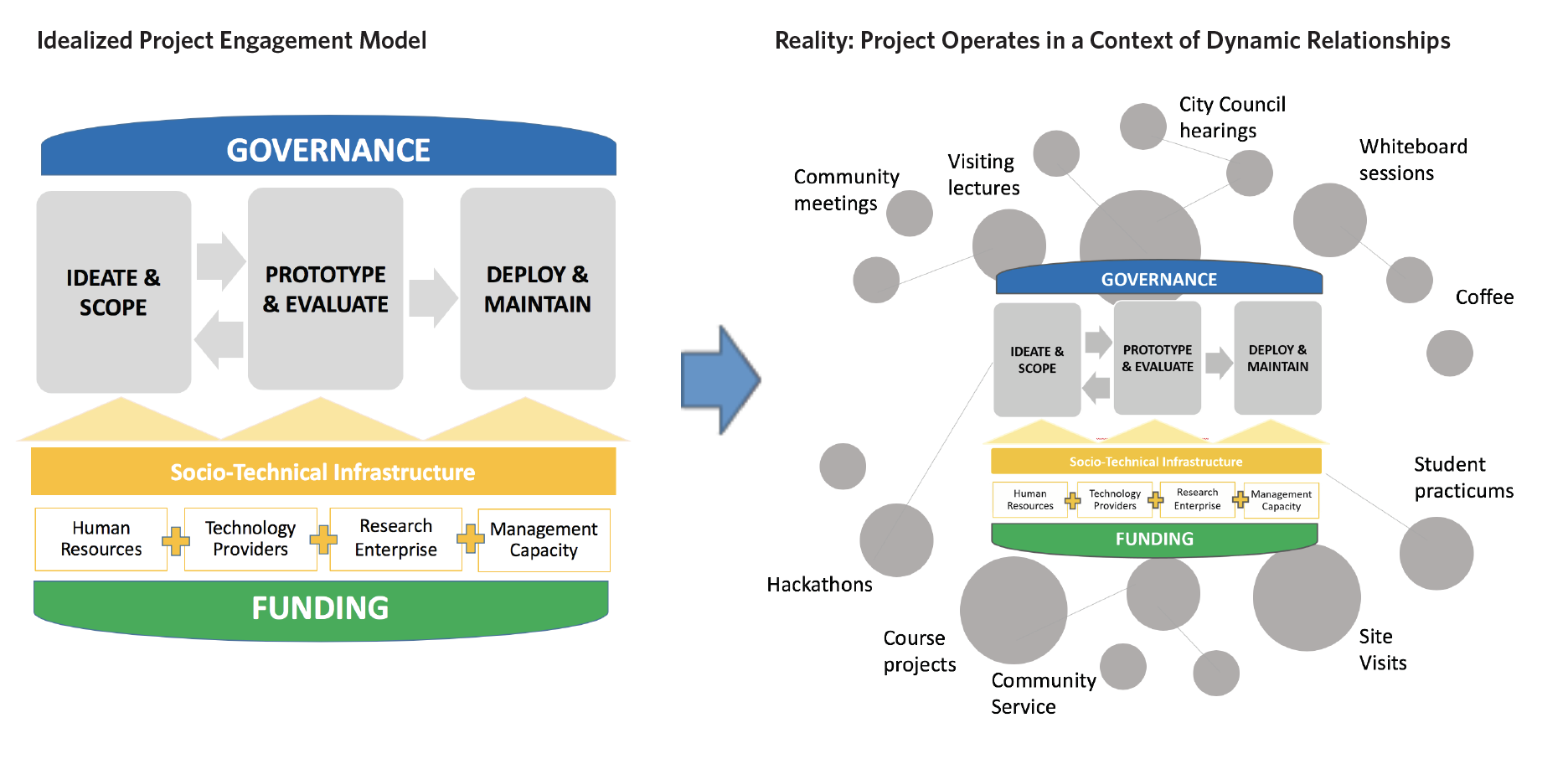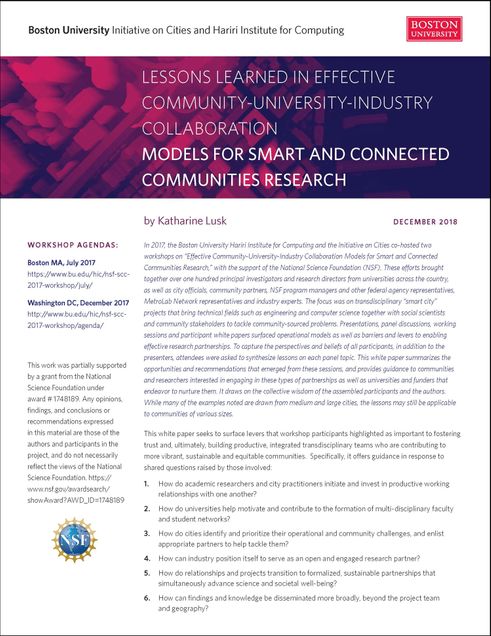A White Paper: “Effective Community-University-Industry Collaboration Models for Smart and Connected Communities Research.”
Uncovering How to Work Together
In 2017 the Hariri Institute for Computing along with the BU Initiative on Cities held two workshops titled “Effective Community-University-Industry Collaboration Models for Smart and Connected Communities Research.” Attendees at these events included principal investigators, research directors, city officials, community partners, NSF program managers, and federal agency and industry representatives. The primary focus of the conference was on “smart cities” and projects that would bring together computer science and engineering with social scientists and community stakeholders to evaluate and discuss community-sourced challenges.
A White Paper Summary

Katharine Lusk, co-Director of the Initiative on Cities, recently authored a synthesis of the key lessons the emerged from the workshops. The white paper, “Lessons Learned in Effective Community-University-Industry Collaboration: Models for Smart and Connected Communities Research” highlights the factors that are important to nurturing trust and building productive and integrated teams. It is structured to address six questions posed to workshop participants:
- How do academic researchers and city practitioners initiate and invest in productive working relationships with one another?
- How do universities help motivate and contribute to the formation of multi-disciplinary faculty and student networks?
- How do cities identify and prioritize their operational and community challenges, and enlist appropriate partners to help tackle them?
- How can industry position itself to serve as an open and engaged research partner?
- How do relationships and projects transition to formalized, sustainable partnerships that simultaneously advance science and societal well-being?
- How can findings and knowledge be disseminated more broadly, beyond the project team and geography?
Furthermore, a particularly notable section of the white paper centered on the idea that all parties must focus on the whole relationship not just one project, as the diagram below illustrates.

Wrapping up, the white paper concluded with lessons learned that could help inspire collaboration in the pursuit of societal well-being.
The Hariri Institute for Computing
Finally, the Hariri Institute for Computing fosters, nurtures, and propels research, curricular, and extra-curricular initiatives through establishing new collaborations and partnerships inside of the University and with the external community and industry as well. The Institute promotes discovery and innovation through advancement of computing and data sciences and through the integration of computational technologies into emerging applications that address societal needs and challenges in a world increasingly shaped by algorithms and driven by data. The concept of “smart cities” and how different groups can work together as outlined during the conference and throughout this white paper, is a central aspect of the Institute.

